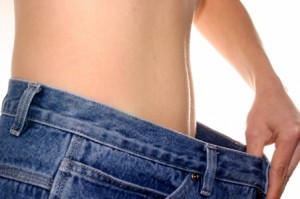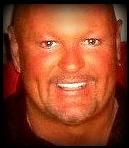The Truth About Starvation Mode
It’s time to re-think the common myth that the intake of too few calories will cause your body to go into “starvation mode” causing your body to think it’s starving and therefore burn only muscle as fuel, holding on to “all” its fat-stores.
Also, let’s stop buying into the notion that to get out of “starvation mode” you’ll need to consume more calories to kick start your now sluggish metabolism. Most people believe this, probably because they’ve heard it so often. They assume it must be true, but like most other dieting myths, it’s false.
You cannot eat more calories to force your body to lose weight. The laws of physics and thermodynamics will simply not allow it. Let’s say a person claims to be eating only 1,000 calories and not losing weight. A well-meaning friend then tells them that they are in starvation mode, and in order to lose weight they must eat more to jump-start their metabolism.
 My question is: instead of eating more, what do you think would happen if you just stopped eating altogether? Would you then go further into starvation mode and continue to stay at the same weight or maybe even gain weight? Clearly, you would lose more weight if you stopped eating altogether. Dumb, I know – I’m simply illustrating a point.
My question is: instead of eating more, what do you think would happen if you just stopped eating altogether? Would you then go further into starvation mode and continue to stay at the same weight or maybe even gain weight? Clearly, you would lose more weight if you stopped eating altogether. Dumb, I know – I’m simply illustrating a point.
So, where did this myth come from, and how did it begin.
Like many myths, they are born out of semi-truths. There actually is a well-documented and true phenomenon known as the starvation response. However, it only happens in humans when they lose so much body fat that they fall below fat-levels essential for survival. For men this would be below around 5%-fat and in women, just above that. This hardly applies to the average “dieter” reading this post, or bodybuilders dieting for their next competition.
My bodybuilding friends usually like to jump in here and say, “but, if we consume to0 few calories we’ll be burning muscle instead of fat, right?” Wrong again. This is another case of a slice of truth being blown-up into a major exaggeration. We always burn or lose some muscle (amino-acids) when we diet, no-matter how sensibly it’s done. But before it actually amounts to anything significant (or an amount that is noticeable in one’s visual musculature), the body will first exhaust most of its fat reserves.
BOTTOM-LINE: if you are “over-fat” and NOT losing weight, regardless of your efforts to do so, the most important thing to do is re-evaluate your own energy-equation. Yes, I mean “calories-in versus calories-out”.
Outside of a special medical condition, weight-loss will always be the on-going balance of how much you eat versus how much you move.
The best way to do this will always be to focus on food-portions and to maintain a healthy level of activity.
